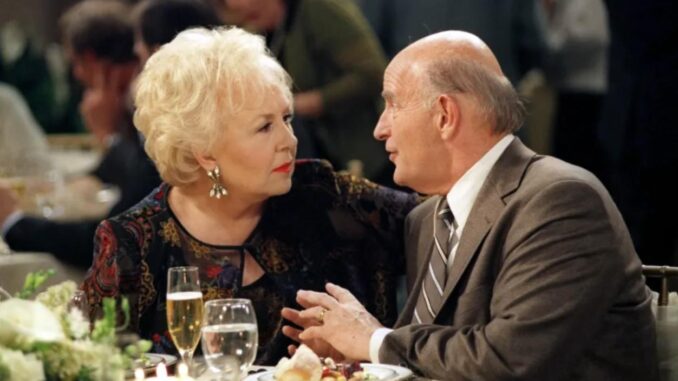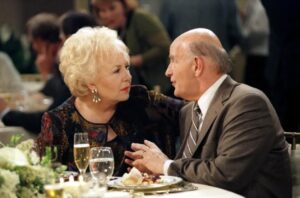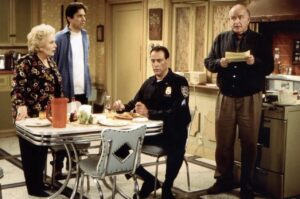
The nine-season arc of the show starts by focusing on the little interactions, verbal confrontations, and emotional outbursts between Ray Barone and his family members as they navigate everyday life. These center on the titular protagonist and highlight Ray’s relationship as a husband, son, brother, and to a lesser extent, father. As the seasons progress, though, the story grows and starts to include stronger themes on parenting. Robert, Ray’s brother, becomes more and more of a central character, too, and Ray’s job as a sports journalist comes into focus.

In its twilight seasons, the topics become more extreme and isolated from one another. As the creative juices clearly ebb, episodes hone in on niche things like Robert’s wife Amy’s brother, Peter, the PG-rated repercussions of “angry sex,” and even an entire episode about a faux pas. The series finale of “Everybody Loves Raymond” centers on Ray’s discovery that he needs to have his adenoids removed. When he fails to wake quickly from the anesthesia required for the surgery, everyone becomes nervous.
This leads to a fascinating subconscious retrospective of the show, all condensed into a few minutes in a hospital waiting room. Debra, Robert, sister-in-law Amy, and parents Frank and Marie terrifyingly contemplate the repercussions of a life without their dearly beloved Raymond. When (spoiler alert) it turns out that Raymond doesn’t get bumped off in the finale, everything goes back to normal.

If the show was popular and there was endless room to run with near-infinite storylines, why did it stop? It’s true that Peter Boyle passed away the following year. But it turns out it wasn’t Boyle’s age nor the ability to keep the rest of the growing cast together that brought things to a close. It was Phil Rosenthal himself.
In an interview with AV Club, the show’s creator simply shared that “We ran out of ideas.” In another interview with the Television Academy Foundation, Rosenthal also explained that he had the finale ready part-way through writing Season 8. He had planned on using it at the end of that season, but the show was so popular that the network convinced them to stretch the show into a truncated Season 9. Rosenthal insisted that the show wouldn’t have an overlong finale (its runtime is a neat 23 minutes) and that it wouldn’t “tear down the house.” It was a show about normal life, and it would end that way. No need for dramatics.

Ideation and exhaustion were important factors, but Rosenthal also wanted to end on a high. “You want to get off the stage before you wear out your welcome,” he told AV Club, “And we actually cared enough about our audience to want to go before we became lousy.”
Despite a lengthy 210-episode run, “Everybody Loves Raymond” didn’t overstay its welcome. The sitcom quietly shuffled off this mortal coil in a manner distinctly different from the emotionally explosive subject matter. In the end, “Everybody Loves Raymond” went out on top, not with a bang but with a whimper, leaving its loyal audiences to revel in the endless ecstasy of syndicated and streaming reruns for the rest of their lives.
